Do time travel paradoxes spell doom to time travel? The short answer is no. Many in the scientific community do not think time travel paradoxes present an insurmountable barrier to time travel. Many physicists have suggested solutions to time travel paradoxes. In fact, discussing them all would result in a book. I will discuss the major ones. For the sake of convenience, I have divided them into four categories:
- Multiverse hypothesis—The multiverse hypothesis argues that time travel paradoxes are real, but they lead to alternate realities. The most famous theory in this category is American physicist Hugh Everett’s many-worlds interpretation (MWI) of quantum mechanics. According to Everett (1930–1982), certain observations in reality are not predictable absolutely by quantum mechanics. Instead, there is a range of possible observations associated with physical phenomena, and each is associated with a different probability. Everett’s interpretation is that each possible observation corresponds to a different universe, hence the name “many-worlds.” Let us consider a simple example. If you toss a coin in the air, it can come down heads or tails. The probability of getting heads is equal to the probability of getting tails. If you toss the coin, and it comes down heads, then there is another you, in another universe, who observes tails. This sounds like science fiction. However, according to a poll published in The Physics of Immortality (1994), 58% of scientists believe the many-world interpretation of quantum mechanics is true, 13% are on the fence (undecided), 11% have no opinion, and 18% do not believe it. Among the believers are Nobel laureates Murray Gell-Mann and Richard Feynman, and world-famous physicist/cosmologist Stephen Hawking. In our everyday reality, many of us would reject the many-world interpretation of quantum mechanics because we do not experience it directly. However, let me point out, we do not experience the individual atoms of a book when we hold it. Yet, we know from sophisticated experimental analysis that the book is a collection of atoms. Unfortunately, in the strange world of quantum mechanics, our intuition and experience rarely serve us. I leave it to you to formulate your own conclusions.
- Timeline-protection hypothesis—The timeline-protection hypothesis asserts that it is impossible to create a time travel paradox. For example, if you travel back in time and attempt to prevent your grandfather from meeting your grandmother, you fail every time. If you attempt to shoot yourself through a wormhole, the gun jams, or something else happens, which prevents you from changing the past. Several other paradox resolutions fit under this category. They are:
- The Novikov self-consistency principle, suggested by Russian physicist Igor Dmitriyevich Novikov in the mid-1980s, which asserts anything a time traveler does remains consistent with history. For example, if you travel to the past and attempt to keep your grandfather from meeting your grandmother, something interferes with any attempt you make, causing you to fail in the attempt. In other words, the time traveler is unable to change history.
- The self-healing hypothesis theory, which states that whatever a time traveler does to alter the present by traveling to the past sets off another set of events to cause the present to remain unchanged. For example, if you attempt to prevent Abraham Lincoln’s assassination, you may succeed in preventing John Wilkes Booth from carrying out the assassination only to find someone else assassinated Lincoln. In essence, time heals itself.
- Timeline-corruption hypothesis—The timeline-corruption hypothesis suggests that time paradoxes are inevitable and unavoidable. Any time travel to the past creates minute effects that inevitably alter the timeline and cause the future to change. For example, if you inadvertently step on an ant in the past, it changes the future. Popular science fiction literature calls this the “butterfly effect,” namely, that the flutter of a butterfly’s wings in Africa can cause a hurricane in North America. Under this theory, anything you do will have a consequence. It may be small and benign. Alternatively, it may be large and disastrous. The destruction-resolution hypothesis fits in this category. It holds that anything a time traveler does resulting in a paradox destroys the timeline, and even the universe. Obviously, if the destruction-resolution hypothesis is true, any time travel would be disastrous. However, I doubt the validity of the destruction-resolution hypothesis, since we are able to perform time dilation (i.e., forward time travel) experiments with subatomic particles using particle accelerators.
- Choice timeline hypothesis—The choice timeline hypothesis holds that if you choose to travel in time, it is predestined, and history instantly changes. This implies you can time travel to the future and leave an item there that you will need sometime in the future. It will be there for you when the future becomes the present. For example, assume you are in New York City, and someone is about to assault you. You have no escape or means of protection. According to the choice timeline hypothesis, you can use your time machine to travel to the future. You hide a gun near the place where the assault is about to occur. When the assault occurs, you retrieve the hidden gun and scare off the attacker.
There are numerous other time-paradox resolution hypotheses. Most fall under one of the above categories, or are not as popular as the above. I left them out in the interest of clarity and brevity. The four categories above give us a reasonable framework to understand the major time-paradox resolution theories, and the current thinking regarding their impact on the timeline.
The majority of the scientific community does not think time paradoxes inhibit time travel. For example, Kip Thorne, an American theoretical physicist and professor of theoretical physics at the California Institute of Technology until 2009, argues that time paradoxes are imprecise thought experiments which can be resolved by numerous consistent solutions. The scientific consensus appears to be that time paradoxes may or may not occur, but they do not exclude the possibility of time travel. This position appears validated by the time dilation (i.e., forward time travel) experiments routinely performed using particle accelerators.
This post is based on my book, How to Time Travel (2013)
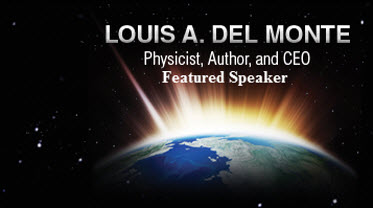






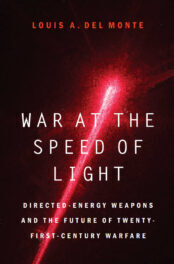
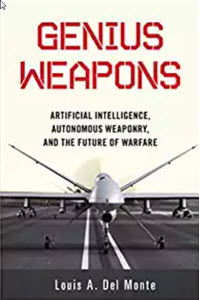
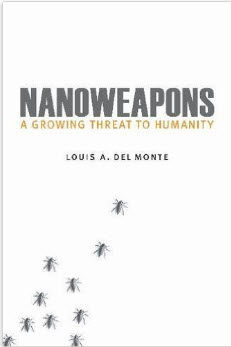
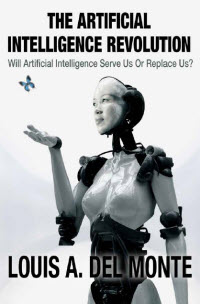

I write time travel fiction and I think about this stuff a lot. Our generally poor understanding of time gives people like me lots of wriggle-room to create time-travel stories that focus on all the potental models of how it works. (For example, my time-travel thriller series, Timesplash, uses a variant of the self-healing hypothesis you describe above. Another novel of mine uses a strictly relativistic model that is equivalent to the Novikov self-consistency principle.) It’s fun to play with these ideas.
However, strangely enough, I have a problem with the most widely-accepted relativistic account of time dilation (either at near light speeds, or in a strong gravitational field) as being time travel at all, in the sense that sci-fi writers use it. Yes, at 99% of the speed of light, frames of reference external to your own seem to age 7 time faster, but this is very different from the popular notion of time travel (e.g. using a “time machine”) where you step in and, without moving, the machine transports you a hundred years into the future. Having a slower passage of time in your own inertial frame, seems to be qualitatively different from what most people mean by time travel.
Hi Graham,
I understand your point. Here is how I think of it. When we observe time dilation (for example in a particle accelerator), it means the particle’s life has been extended to the point it is now present in my future. This is not an optical illusion. From my point of view, the particle has time traveled to my future, or I would not be able to observe it. If I were on the particle and looked at the clocks in the laboratory, they would appear to be going very fast relative to my clock on the particle. I hope these conceptualizations help.
Best regards,
Lou
Oh yes, I see exactly what you’re saying. If you go back to H G Wells’ The Time Machine, you have him sitting in his device watching the world age very quickly all around him. Unfortunately, his friends see him disappear, whereas, from their perspective, they should have seen him stay exactly where he is but become frozen into near immobility.
Most “time machine” style stories use the same conceit. The traveller disappears from our time and reappears in the future – the time travel equivalent of spatial teleportation. (The traveller, since Wells’ time, doesn’t usually get to see outside until they arrive – or they see only weird stuff or greyness or whatever.)
I was very taken with the idea at one time that massive objects age more slowly than less massive ones (e.g. In the past 4.5 bn years, the Sun should have aged about 7 years less than the Earth – or something like that). I couldn’t understand why we could still see the Sun at all since we’ve moved ahead of it in time. Your explanation would be, I suppose, that we’re actually seeing a Sun that is 7 years *older* than it would be if it had kept pace – because we travelled into its future!
Hi there! Do you use Twitter? I’d like to follow you if that would be okay.
I’m absolutely enjoying your blog and look forward to new updates.
Thank you for your compliments. My Twitter address is https://twitter.com/delmontelouis1.